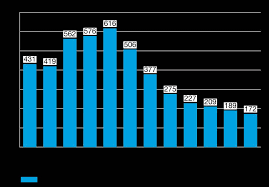
Introduction to IPP Sentences
The Imprisonment for Public Protection (IPP) sentence is a significant aspect of the UK justice system, designed for offenders considered to pose a high risk to the public. Introduced by the Criminal Justice Act 2003, IPP sentences have sparked ongoing debates about their efficacy, fairness, and human rights implications.
The IPP Sentence Explained
IPP sentences are indeterminate sentences requiring offenders to demonstrate a change in behaviour and risk levels before being eligible for parole. This means that one can remain in custody indefinitely if deemed to still pose a threat to society. Initially targeted at serious violent and sexual offenders, the broad application of IPP sentences has led to concerns about injustices, particularly for those serving lengthy terms due to the challenges in rehabilitation and the parole process.
Recent Developments and Their Impact
As of 2023, the UK government has acknowledged the significant implications of IPP sentences, with many individuals remaining in prison long after their minimum terms have been served. Reports indicate that over 3,000 people are still incarcerated under this framework, often described as ‘lifers without a life sentence’. In recent parliamentary discussions, there have been calls for reform, arguing that IPP sentences need to be reviewed to ensure justice and humane treatment for inmates.
Last year, a report by the Justice Select Committee called for an end to the IPP regime, suggesting that it has become a ‘failed experiment’ that imposes harsh conditions on those who may not be inherently dangerous. This recommendation sparked debate among legal scholars, practitioners, and human rights advocates, emphasizing the importance of reforming the system to balance public safety and fairness.
Conclusion: The Future of IPP Sentences
The future of IPP sentences remains uncertain as the UK government evaluates options for reforming this controversial sentencing structure. Advocates for change argue that the current system must be reformed to ensure that individuals have a fair chance at rehabilitation and reintegration into society. Given the ongoing criticisms and growing public awareness, it is likely that we will see significant discussions and potential legislative changes surrounding IPP sentences in the near future, shaping the landscape of criminal justice in the UK.
You may also like

An Introduction to Crime 101: Exploring Its Basics and Impact


Understanding Usman Khan and His Recent Legal Developments
SEARCH
LAST NEWS
- Remembering Wendy Richard: The Promise to Co-Star Natalie Cassidy
- How Did Anglian Water Achieve an ‘Essentials’ Rating for Mental Health Accessibility?
- Shai Hope Leads West Indies in T20 World Cup Clash Against South Africa
- What We Know About Weston McKennie: Future at Juventus and Past at Leeds
- What We Know About the Upcoming Live Nation Antitrust Trial